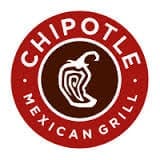Is Safeway Australian Beef Actually Grassfed
 ONE of the largest and fastest growing food service restaurant chains in the United states is the latest North American customer lining upwardly for grassfed/natural beefiness supply out of Australia.
ONE of the largest and fastest growing food service restaurant chains in the United states is the latest North American customer lining upwardly for grassfed/natural beefiness supply out of Australia.
Chipotle Mexican Grill currently operates 1600 stores beyond the US and Canada, growing at around 200 new outlets per year, and has established a division in Europe. All the stores are visitor-owned, rather than franchised. Chipotle had a net income in 2013 of The states$327million and employed more than 45,000 staff.
Simply last calendar month, Chipotle appear an increment in carte prices for the first time in nearly three years, due to the increasing wholesale prices for US beef.
"This is a very positive development for Australian beefiness, and represents further prove of the growing grassfed beefiness niche in the US," MLA'due south US regional director David Pietsch told Beef Central this morning.
The agreement besides reflects the steady growth in Australian chilled beef exports to the US, which take exceeded 36,000 tonnes for the fiscal yr to the end of April – upwardly most 25 percent on the aforementioned period last year.
"Chipotle is simply i of several new large accounts continuing to open upward for Australian grassfed beef in the The states in the by 12 months, in response to a growing niche of consumers looking for alternatives," Mr Pietsch said.
"Australia's integrity messaging, shelf-life, and capacity to supply are increasingly attracting customers looking for products in this category, in pregnant volumes. An historically low United states beef herd and lower Australian dollar certainly assist as well," he said.
Beefiness Primal wrote before nigh the recent penetration of the huge 1400-store Safeway supermarket chain, now taking Angus Pure grassfed beef supplied through Certified Australian Angus Beef and Thomas Foods International out of Murray Bridge (click here to view commodity).
Through TFI's ComFoods The states wholesale division, Safeway is taking a range of Australian grassfed, natural cuts as well as supply of manufacturing meat for ground beef.
Mr Pietsch said MLA'due south North America plan had been utilising grassfed levy funds to generate an awareness of Australian grassfed beef and its attributes, and provide data on our manufacture and integrity systems that underpin Australian production.
"We're working in partnership with supply chains to demonstrate first-hand these systems and our product practices," he said.

David Pietsch
Mr Pietsch said inside the whole complex of the huge US beefiness industry, grassfed/natural remained a niche segment, simply it was a rapidly growing niche, that was so well-suited to Australian supply.
"Simply that challenge is that once Australia commits to one of these big Usa supply programs, it has to be there, every week, 52 weeks of the year," he said. "It tin can't exist a seasonal product that dips in and out depending on the weather."
The Australian product now existence sold into the Chipotle Mexican Grill supply chain is grassfed natural beef, with added raising claims effectually freedom from HGP and antibiotics. It's important to stress that information technology is non currently sourced from the new Pasturefed Cattle Assurance System (PCAS).
In terms of coming together the requirements of the FSIS within USDA, Australian suppliers have to get through the usual documentation in terms of steps to verify the grassfed and non HGP/antibiotic claims, in order to get label approval aslope the raising claims.
While the specific exporter suppliers out of Australia have not been identified at this point, it is known that at that place is more 1 Australian processor involved, given the size of the contract, and the supply is oriented towards southern Australia.
Mr Pietsch said i of the existent beauties of the Chipotle account was that, given its Mexican food origins, it was taking a range of secondary slow-cook cuts, that nicely complemented the trade in grassfed grilling cuts going into Us retail customers like Safeway.
'Information technology volition help balance out the grassfed carcase nicely," he said.
Stiff 'responsibly raised' claims have attracted controversy
Chipotle Mexican Grill founder and CEO Steve Ells said the company's vision was to alter the way people think about and eat fast food.
"Nothing is more than important to us than serving our customers fresh, delicious ingredients that are raised responsibly and prepared using classic cooking techniques," he said.
Terminal year, Chipotle released an animated short moving-picture show called The Scarecrow featuring a narrative heavily critical of 'industrial farming', while delivering little in the way of direct marketing for the concatenation. Chipotle has attracted criticism in the Usa for its willingness to disparage conventionally-produced US beefiness, branding it 'manufacturing plant-farmed,' evidently for its own competitive commercial advantage.
The company uses the motto "Food with Integrity" as an endorsement of the "hardworking producers who invest in raising quality beef supported by industry-led integrity systems."
In a blog featuring this week on Huffingtonpost.com, Mr Ells said when deciding which ingredients to source, the company'southward internal discussions considered many factors including taste, animal welfare, farming practices, supply quantity, cost and location.
"We're ever trying to find what nosotros consider to exist the best ingredients past balancing these factors. For some ingredients, finding the best source is easy. In other cases, like beef, it can be quite complex — the right answer isn't ever obvious," he said.
"When it comes to beef, for one thing, at that place are many different means to raise cattle – from conventional (with antibiotics and hormones) to the higher standards nosotros crave for our Responsibly Raised brand beef (without antibiotics and hormones), and from grain-finished to entirely grass-fed cattle."
Mr Ells said Chipotle had had great success serving the premium beef it called 'Responsibly-Raised', which is produced according to high standards requiring, amid other things, that animals be raised without hormones or antibiotics.
"Simply lately, nosotros have been wrestling with a especially vexing issue. Over the last 5 years, as our restaurant count has grown from 800 to more than 1600, so has our need for all of the ingredients we use.
"We accept helped numerous meat farmers convert from conventional production methods to the more than responsible models nosotros prefer. All the same, sometimes the existing supply of the meats we serve is unable to meet our growing demand."
On occasions when the visitor has been unable to secure sufficient quantities of a particular 'Responsibly Raised' meat, it has temporarily replaced it with a conventionally-raised culling — informing customers about the substitution with signage in restaurants.
"This has been the case recently with the beef we serve, as the size of the full The states cattle herd has shrunk to its everyman point in more than than 60 years," Mr Ells said.
"Rather than serve conventionally raised beef, we recently began sourcing supplies from ranches in Southern Australia, which is among the very best places in the earth for raising beef cattle entirely on grass," he said.
"The meat produced by these ranchers is 'grassfed' in the truest sense of the term: the cattle spend their unabridged lives grazing on pastures or rangelands, eating merely grass or forages (by definition, forages are hay and grass-corn is not forage)."
"It meets or exceeds the husbandry standards set forth by the American Grassfed Association, not to mention all of the protocols nosotros apply to our domestic Responsibly Raised beef," Mr Ells said.
"The cattle are raised without added growth promotants or antibiotics by Australian ranchers committed to humane fauna husbandry. Similar the domestic beefiness we serve, our Australian grassfed steak is anile, and never frozen."
In 2013, Chipotle purchased more than 20,000 tonnes of United states domestic 'Responsibly Raised' beefiness, only the US supply wasn't growing quickly enough to match need.
"Even though our loyalty to American ranchers is potent, rather than meet the shortfall with conventionally-raised beef from US cattle treated with hormones and antibiotics, we decided to accept this opportunity to first sourcing more than truly grassfed steak," he said.
"In addition to expanding our supply of beefiness raised without HGP or antibiotics, we are particularly excited to be able to serve more beefiness that comes from cattle raised entirely on grass."
"We believe that in addition to the unproblematic fact that our Australian grass-fed beef is succulent, serving it is an important footstep in our never-ending journey to assistance build a food arrangement based on what we call Food with Integrity. Returning to grass-based farming systems for cattle is a core component of our long-term vision."
"While we're purchasing minor amounts of grassfed beef from American producers similar Missouri's Rain Crow Ranch, Usa grassfed beef that meets our standards is simply non produced in sufficient quantities to meet our demand."
Mr Ells said the transition toward grassfed beefiness would non happen overnight.
"But we need to start somewhere, and years of research past our purchasing squad suggests that Commonwealth of australia is the best place to start sourcing grassfed beef at the scale we need."
Source: https://www.beefcentral.com/trade/large-us-grassfed-beef-users-increasingly-turning-australia/
0 Response to "Is Safeway Australian Beef Actually Grassfed"
Post a Comment